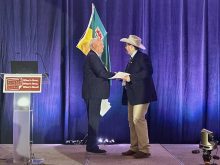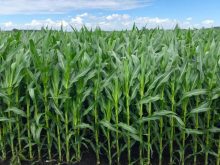BASF Plant Science and Monsanto Co. have agreed to expand their joint biotech development work into wheat, potentially bringing an “enhanced-yielding” wheat to market — at least 10 years from now. The two companies said in a release recently that they plan to “initially focus on developing biotech products for the North American and Australian markets.” The joint announcement comes on the heels of a separate plan announced by Syngenta and the International Maize and Wheat Improvement Center (CIMMYT) in April to work toward biotech wheat.
Read Also

AgraCity’s farmer customers still seek compensation
Prairie farmers owed product by AgraCity are now sharing their experiences with the crop input provider as they await some sort of resolution to the company’s woes.
The added efforts would be good news for the segment of Canadian wheat growers who say the use of genetic modification (GM) technology is long overdue to improve traits in wheat such as yield potential and tolerance to drought stress. But citing the loss of some canola markets as an example, other growers’ groups have long warned that to move forward on GM wheat without widespread market acceptance would jeopardize key wheat export markets.
“Our reinvestment in wheat is in its infancy and we are still analyzing all our options relative to Canada,” Trish Jordan, spokesperson for Monsanto Canada, says. “We recognize Canadian growers have been strong adopters of technology in other crops such as canola, corn and soybeans, so as we develop advanced breeding technologies and traits for wheat, we will be interested in looking at opportunities for Canada and Canadian growers.”
The BASF/Monsanto collaboration, first set up in 2007 with a budget of up to US$1.5 billion, has so far included corn, soy, cotton and canola and is expected to produce a first-generation drought-tolerant corn by “around 2012.” Adding wheat to the agreement will bring a “potential additional investment” of over US$1 billion during their collaboration, BASF and Monsanto said.
Monsanto’s Jordan says the company has had discussions with grower groups and “other key stakeholders” in Canada and elsewhere and is open to collaboration with both public and private institutions in the U. S. and Canada. “We have been encouraged by the broad interest expressed in the U. S. and the level of engagement of these groups and are looking for similar signs in Canada,” she says.
The first enhanced-yielding wheat product is expected to reach the market after 2020, the companies said, and would be followed by “successive generations of higher-yielding wheat varieties.”
Withfilesfrom AGCanada.com.














